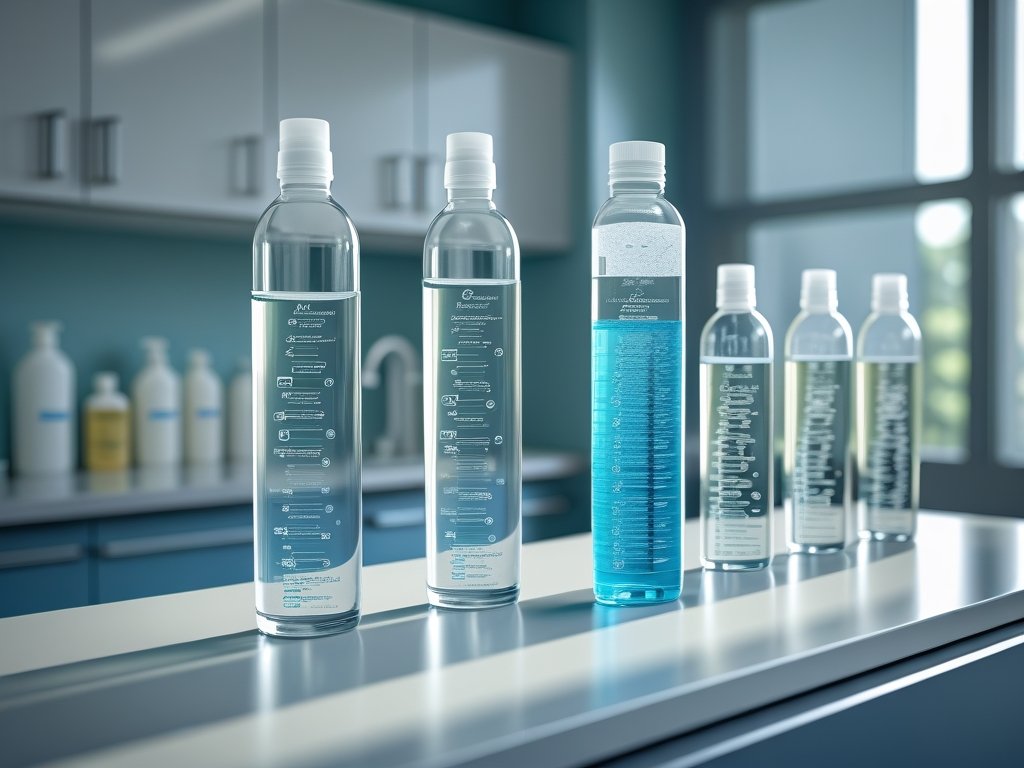Emotional intensity is part of being human. We all experience days where feelings run high – whether it’s stress from work, navigating challenging relationships, processing difficult news, or simply feeling overwhelmed by life’s demands. These intense emotional states aren’t inherently negative; they signal that something important is happening within us and deserve acknowledgment. However, when we are emotionally flooded, our ability to think clearly, make rational decisions, and cope effectively can be significantly impaired. Often overlooked in the quest for emotional regulation is a fundamental physiological need: adequate hydration. It’s easy to focus on techniques like deep breathing or mindfulness – which are undeniably valuable – but neglecting water intake during periods of heightened emotion can actually exacerbate feelings of anxiety, fatigue, and even irritability.
The connection between physical state and emotional wellbeing is deeply intertwined. Dehydration impacts cognitive function, leading to reduced concentration and impaired judgment. This makes it harder to process emotions constructively. Furthermore, the physiological stress response triggered by intense emotions – increased heart rate, rapid breathing, muscle tension – actually increases our body’s need for fluids. When we’re emotionally charged, we may also be more prone to neglecting self-care practices like drinking water, creating a vicious cycle where dehydration intensifies emotional distress and makes it harder to cope. This article explores the concept of a “hydration mindset” as a proactive tool for navigating emotionally intense days, offering practical strategies to integrate mindful hydration into your routine and bolster your resilience.
The Science Behind Emotional Regulation & Hydration
The brain is approximately 73% water. Even mild dehydration (as little as 2%) can impair cognitive performance, affecting attention span, memory, and decision-making abilities – all of which are crucial for emotional regulation. When dehydrated, the brain struggles to function optimally, making it harder to process emotions in a healthy way and increasing susceptibility to mood swings and irritability. Think of it like trying to run complex software on a computer with limited processing power. It’s simply going to struggle. Moreover, dehydration impacts the production of neurotransmitters – chemical messengers that play vital roles in emotional wellbeing. Specifically, serotonin, often referred to as the “happiness hormone,” is heavily influenced by hydration levels.
Beyond cognitive function, hydration directly affects the body’s stress response system. When we experience stress or strong emotions, cortisol (the “stress hormone”) is released. While necessary for survival, chronically elevated cortisol can have detrimental effects on both physical and mental health. Proper hydration helps to regulate cortisol levels, mitigating some of the negative impacts of chronic stress. It’s not about eliminating stress entirely – that’s unrealistic – but rather equipping our bodies with the resources they need to manage it effectively. Hydration isn’t just about quenching thirst; it’s about supporting fundamental physiological processes that underpin emotional stability.
A key element often missing is recognizing how emotions physically manifest. Anxiety, for instance, can lead to rapid shallow breathing and increased sweating – both of which contribute to fluid loss. Grief may result in fatigue and disinterest in self-care, including drinking water. Recognizing these physical connections allows us to proactively address dehydration as part of our emotional support system. Prioritizing hydration is not a replacement for other coping mechanisms, but it’s an essential foundation upon which those mechanisms can function most effectively. To further understand the importance of consistent fluid intake, consider exploring hydration strategies for kidney support and their impact on overall wellbeing.
Building Your Hydration Mindset
A “hydration mindset” isn’t about rigidly adhering to a specific daily water intake goal (though that can be helpful). It’s about cultivating awareness of your body’s needs and integrating hydration into your emotional self-care routine. Here are some steps you can take:
- Identify Your Triggers: What situations or emotions consistently lead you to neglect drinking water? Is it during stressful work deadlines, challenging conversations, or periods of sadness? Recognizing these triggers allows you to anticipate the need for increased hydration.
- Proactive Preparation: Keep a reusable water bottle readily accessible at all times – on your desk, in your bag, even by your bedside. Visual cues serve as gentle reminders to sip throughout the day. Consider investing in an app or setting alarms if needed.
- Emotional Check-Ins: Throughout the day, pause and check in with yourself emotionally. If you’re feeling overwhelmed, anxious, or stressed, ask yourself: “When was the last time I had water?” A simple question can prompt a much-needed hydration break. To optimize your routine, think about incorporating consistent hydration tracking into your daily life.
Hydration Beyond Water: Electrolytes & Supportive Beverages
While plain water is essential, it’s not always enough, especially during emotionally intense periods. When we experience stress, our bodies deplete electrolytes – minerals like sodium, potassium, and magnesium – which are vital for nerve function and muscle contraction. Imbalances can contribute to fatigue, irritability, and even anxiety. Incorporating electrolyte-rich foods into your diet is a great start:
- Bananas (potassium)
- Spinach (magnesium)
- Coconut water (electrolytes)
- Watermelon (hydration & electrolytes)
Consider supplementing with an electrolyte drink or adding a pinch of sea salt to your water, particularly if you’ve been sweating profusely due to stress or anxiety. However, be mindful of sugary sports drinks; opt for low-sugar or natural alternatives. Herbal teas can also contribute to hydration and offer calming benefits. Chamomile tea, known for its soothing properties, is an excellent choice during stressful times. Remember, the goal isn’t just to increase fluid intake but to replenish essential minerals lost due to emotional stress. For a more holistic approach, you may want to explore strategic food pairings for balanced hydration.
Making Hydration a Habit: Small Changes, Big Impact
Consistency is key when building any new habit, including a hydration mindset. Don’t try to overhaul your routine overnight; start with small, manageable changes. Instead of aiming for eight glasses of water immediately, begin by adding one extra glass each day. Gradually increase your intake as you become more comfortable. Linking hydration to existing habits can also be effective:
- Drink a glass of water before and after meals.
- Sip on water during breaks at work.
- Have a glass of water whenever you feel overwhelmed or anxious.
Avoid waiting until you feel thirsty, as thirst is often a sign that you’re already mildly dehydrated. Make hydration enjoyable by infusing your water with fruits or herbs like lemon, cucumber, or mint. Experiment to find flavors you enjoy and make drinking water a pleasurable experience. Finally, be patient with yourself. There will be days when you slip up; don’t get discouraged. Simply acknowledge it and recommit to your hydration goals the next day. To help establish lasting habits, consider cultivating a long-term hydration mindset.
Furthermore, understanding how these practices integrate with your daily life can be beneficial; perhaps reviewing strategies for creating bladder-friendly environments will provide additional support. Prioritizing hydration isn’t just about physical health, but also a powerful tool in managing your emotional wellbeing and building resilience. Don’t underestimate the impact of small changes – consistent hydration can be truly transformative.
Finally, to reinforce these habits consider incorporating calm hydration cycles into your routine for sustained bladder health and emotional stability.





















